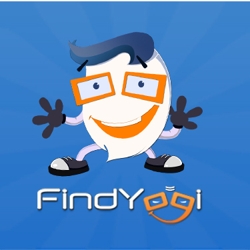FindYogi helps India mobile shoppers with price comparison index

"To be honest, the basic idea for FindYogi came from the temptation of making quick money through SEO," admited Naman Sarawagi, co-founder of FindYogi when I asked him about how he came up with his product.

Product comparison was one of the many things his team mulled over before jumping in. But once work started, the team realized there was a bigger problem to solve in the space of shopping decisions. The competition when they started in October 2012 were only scratching the surface with price comparison or aggregation.
FindYogi is a product comparison engine that allows consumers to make better buying decisions based on intelligent comparison techniques and a value for money index.
The site quantifies the value for money with the FindYogi Index, a rating out of 5, that tells you if a product is worth buying at its current market price. This a completely automated feature that takes into account all the products, and their prices, of that particular category into account.
Essentially FindYogi is in the business of reducing buyer's remorse. According to Naman, they help consumer avoid regretting about a purchase decision by helping them understand the product better before it is bought. Structured and comprehendible data is one of the ways of doing it.
Given the fact that this kind of information was easily available and mostly integrated on most e-commerce sites, I was wondering what they did different and how they stood out.
When asked about his competitors Naman said: "We are competing with e-commerce companies, price aggregators and gadget blogs, in terms of traffic. In terms of product, all the incumbent players are addressing the problem only partially."
He added that a lot of the data with most of the merchants is wrong or incomplete many times. They take a first hand approach to solving this problem. The way they present the data to a consumer is what makes their product stand out.
The key features that set them apart are:
- Publishing complete set of features and prices from different sellers. This sounds very trivial but most e-commerce companies in India do not have so much detail and accuracy. This is a completely manual process.
- Quantify every product based on different features--We provide a Feature Score, a score out of 100, to every product. This is calculated taking into account all the specifications of the product as compared to maximum of that available in market.
- Quantify Value for Money--we have introduced FindYogi Index, a rating out of 5, that tells you if a product is worth buying at its current market price.
Showing 'value for money' with FindYogi Index
How it is calculated
While calculating the FindYogi Index for mobiles competing in different groups, more weightage is give to features than price. The FindYogi Index increases as the price of the product decreases except for when two different peer groups products are being compared. Very suitable for the Indian purchasing psyche, in my opinion.
Why was it needed?
Currently FindYogi is targeting consumers, without limiting themselves to a particular demography. The site is more useful for people who have little to no prior knowledge about products they intend to buy. But obviously, they started with the mobiles and tablets categories because the volume of consumers is high for this vertical. And of course it gives them a lot of room to experiment.
They are looking to address the consumer durables market next. And as of now, they're bootstrapped, and their future goals are to add a couple of more features to address the problem better, especially for the current categories itself. Once they see good traction and acceptance of their product, only then do they aim to jump into other verticals.
Team of 10
They are a team of 10 now, including the founders with Naman having worked as product manager at 500 Startups funded ZipDial and Sequoia-funded Freecharge. He was also the first employee at both these startups. Their Chief of Tech and co-founder Anil Bhat graduated from National Institute of Technology Karnataka in 2006 and has worked with companies such as Novell, Yahoo and has had an active tecchnology career over six years.
Considering the startup is bootstrapped and the idea is something which is integrated from existing models within e-commerce sites in the market, I'd still say this product stands out in terms of its determination to do one thing right and focus on it while others address that problem only partially.
One thing, I'd say is that their design needs more improvement, while they are addressing key problems of consumers, it'd be good to have a user experience that makes the whole process a lot more simpler and smoother. But the key focus of the FindYogi index is a feature that is clearly defining what your purchasing decision should be. As Naman mentioned, they certainly look to be going in the right director with key focus being on traction and improving the features of the product.
Overall, I'd still say, this startup has a good scope for growth and to move ahead further especially as e-commerce especially for electronics and mobile broadens its scope in India. What are your thoughts about this startup?